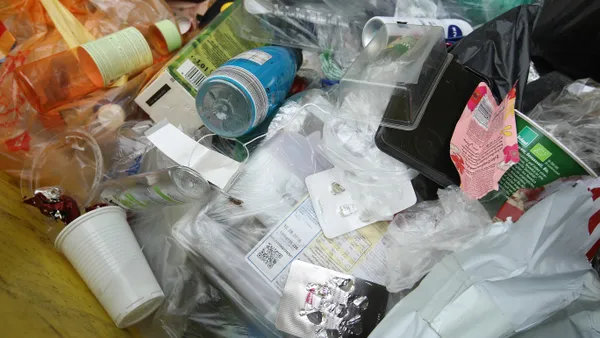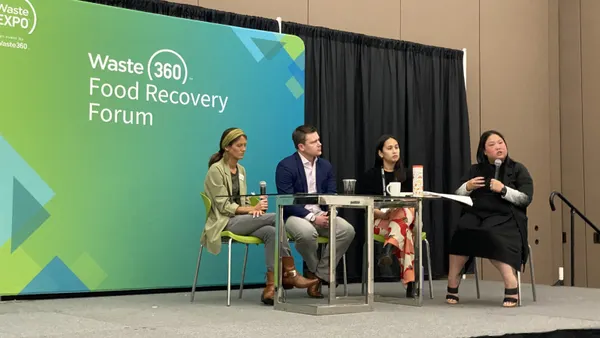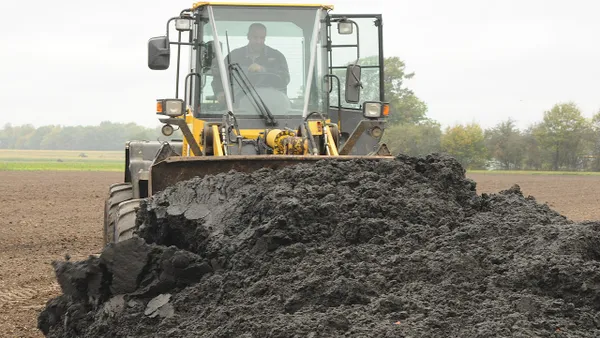Dive Brief:
- Wal-Mart hosted a "Sustainable Packaging Summit" at its headquarters this week to discuss sustainability initiatives with its suppliers and merchants. The Summit focused on source sustainability, optimized design of products and best practices to increase recycling.
- Wal-Mart noted that it is collaborating with many organizations to reach sustainability goals including the Closed Loop Fund, the Sustainable Packaging Coalition (SPC), Association of Plastic Recyclers and The Sustainability Consortium (TSC).
- In an interview with Waste Dive's sister publication Retail Dive, Wal-Mart SVP of Sustainability Laura Phillips noted that improved packaging is the driving force behind company big goals, like zero waste. "We've learned from customers that a key element of product for them is the packaging and that they really can be frustrated by either too much packaging on a product or if they would like to recycle a product and they're not sure what to do with it," she said.
Dive Insight:
As the largest brick-and-mortar retailer in the nation, it is important that Wal-Mart is acting as a role model when tackling sustainability issues on a corporate level. The company set three broad sustainability goals back in 2005 — reaching zero waste, moving to new sources of renewable energy, and improving the sustainability of actual products being sold — and so far the company has made significant progress. Phillips explained to Retail Dive that Wal-Mart is currently at a 74% diversion rate globally (82% in the U.S.) and 25% of global energy being used is renewable.
By focusing on packaging, Wal-Mart can tackle many waste problems while also making visible changes that will be noticed by consumers. The company has touted how its use of the How2Recycle Label will help consumers understand the recyclability of products, and Sustainable Packaging Coalition noted that this partnership with How2Recycle will help make an influence in the supply chain, as reported by Recycling Today.
Making these visible changes for consumers is important, as Nielsen recently found that two-thirds of consumers are willing to pay more for a product if they know it is sustainable. However in order for consumers to stay satisfied with the company's efforts on sustainability, they'll need to expand focuses outside of packaging. A recent Marketplace investigation found that Wal-Mart locations in Canada toss a "disturbing" amount of food waste a day, which may raise concerns among consumers.
Overall, Wal-Mart's focus on sustainability reflects a bigger effort from retailers to be more waste-conscious. Recently, Target joined The Recycling Partnership as its first retail partner and clothing companies like H&M and Levi Strauss have launched campaigns to reduce textile waste.










